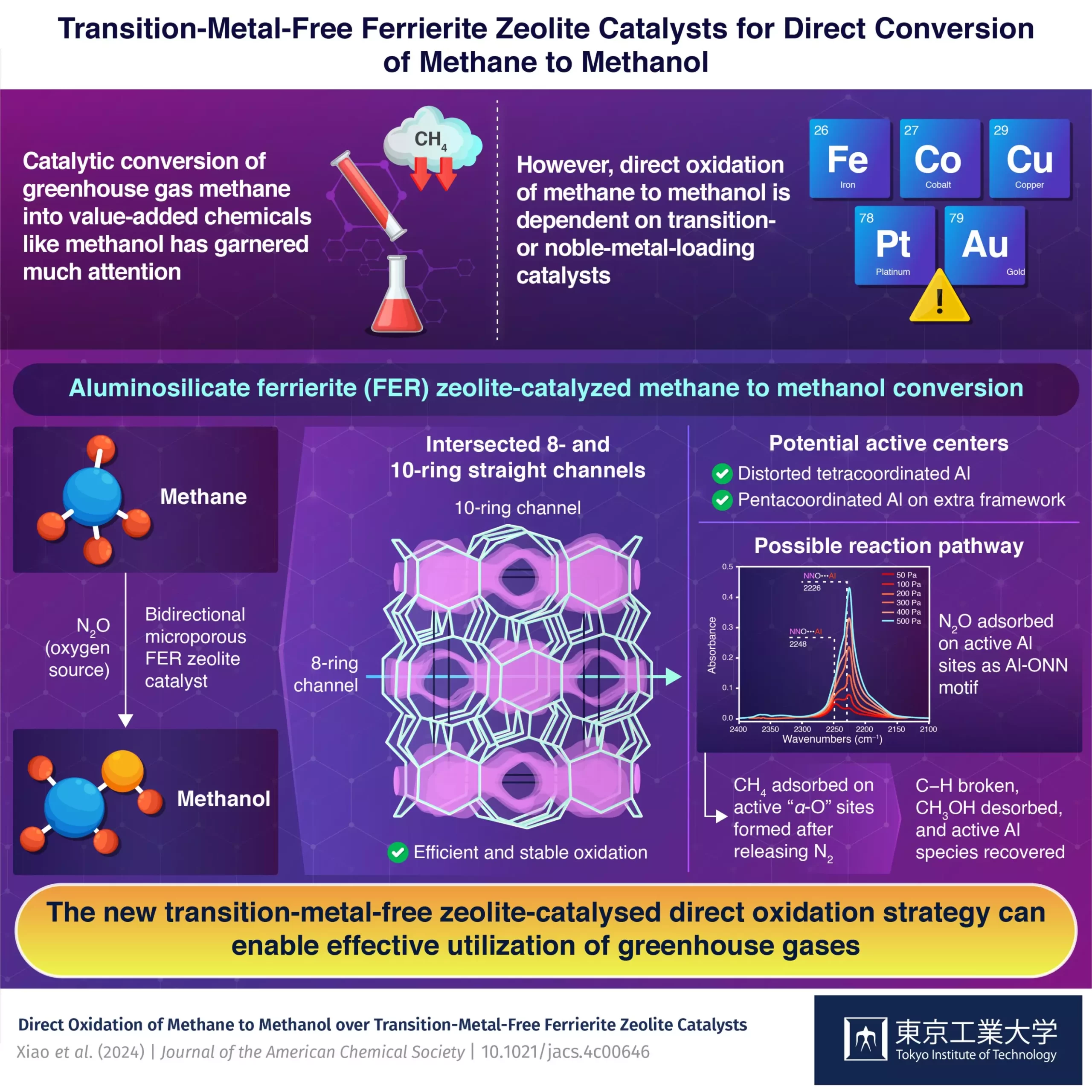The waste-to-wealth movement has sparked interest in technology that can convert greenhouse gases into valuable materials. Among these technologies, the catalytic conversion of methane into methanol has shown promise. Methanol is a crucial industrial solvent and raw material for chemical synthesis. Traditionally, the process of converting methane to methanol has been energy and resource-intensive, relying on rare and expensive metals. However, recent research has uncovered a new approach using transition-metal-free aluminosilicate ferrierite (FER) zeolite.
A team of researchers led by Associate Professor Toshiyuki Yokoi and Assistant Professor Peipei Xiao from the Nanospace Catalysis Unit at the Tokyo Institute of Technology in Japan made a groundbreaking discovery. They found that transition-metal-free aluminosilicate ferrierite (FER) zeolite could facilitate the direct oxidation of methane to methanol using nitrous oxide as the source of oxygen. This unique structural property of FER zeolite opened up new possibilities for catalytic conversion processes.
To understand the active sites within the FER zeolite catalyst, the researchers conducted Fourier transform infrared spectroscopy (FTIR) and magnetic resonance spectroscopy. These tests revealed distorted tetracoordinated Al in the framework and pentacoordinated Al in the extra framework, indicating potential active centers for the catalytic reaction. By studying the reaction pathway through nitrous oxide adsorption FTIR spectra, the team identified the key steps involved in the conversion of methane to methanol.
The transition-metal-free zeolite-catalyzed direct oxidation process demonstrated an impressive methanol production rate of 305 μmol g−1 min−1 with 89% methanol and 10% dimethyl ether selectivity. This performance surpassed many transition metal-loaded catalysts, highlighting the efficiency of the FER zeolite catalyst. The researchers believe that their findings will pave the way for the development of novel catalytic processes for converting methane and nitrous oxide into valuable chemicals.
The breakthrough in direct oxidation of methane to methanol using transition-metal-free aluminosilicate ferrierite (FER) zeolite represents a significant advancement in sustainable catalysis. This innovative approach not only reduces the environmental impact of greenhouse gases but also contributes to the economy by transforming waste materials into valuable products. The research conducted by Yokoi and his team holds great promise for the future of catalytic conversion technologies.


Leave a Reply